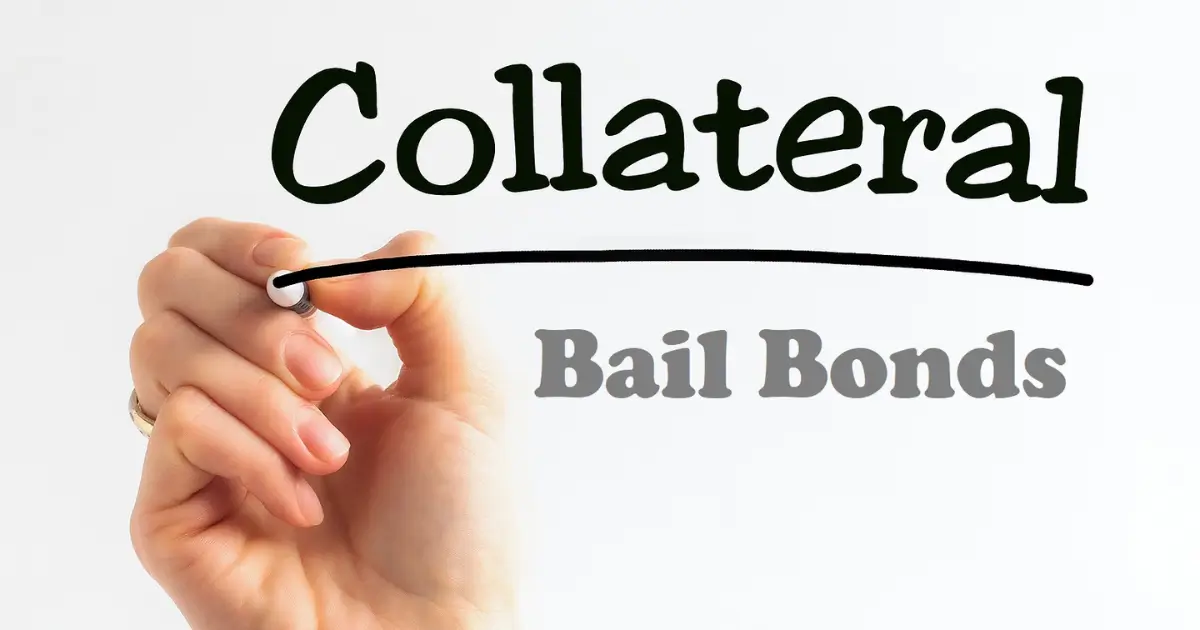Blogs
What Are Collateral Bail Bonds? Everything You Need to Know

When you learn that posting bail may require more than just money, a question often bubbles up: What exactly are collateral bail bonds? That might feel like another layer of complexity when you’re already trying to keep stress in check.
The thing is, collateral bail bonds are worth understanding, because collateral isn’t just legal jargon. It’s your asset, guarantee, and peace of mind all in one. Once you know how collateral works, why it’s used, and what qualifies, you’ll feel a lot more prepared to make the right choices. Here’s what you need to know:
Understanding What Collateral Bail Bonds Are?
So, what are collateral bail bonds in simple terms? At its core, a collateral bail bond is a legal agreement where you pledge something valuable, like a car title, jewelry, or property, as security to the bail bondsman. This isn’t a cash payment; instead, it’s an assurance you or your co-signer will make the person show up in court. If they do, your collateral comes back. If not, it may be forfeited to cover the bond.
Imagine posting bail for $5,000 but don’t have the cash. A collateral bail bond lets you pledge your car title instead. As long as court dates are met, your car remains yours. Otherwise, the bondsman may sell it to satisfy the full bail amount.
Why Collateral Is Sometimes Needed, and What You Should Know
Collateral protects the bondsman. When a bondsman posts that full bail amount to the court, they’re risking their money. Collateral offsets that risk, especially with higher bail amounts or clients without strong credit histories.
That said, understand exactly what collateral bail bonds are because you’re essentially putting your asset on the line. We can walk you through what counts as collateral and explain exactly what happens if court conditions aren’t met. No surprises, no pressure, just transparency when you need it most.
Common Forms of Collateral & What Makes Sense in Tulsa
In Tulsa, collateral can be as diverse as your circumstances. It could be the car in your driveway, a valuable piece of jewelry, or even equity in your home. The key is that it must have sufficient value to cover the bail and be something you’re willing to risk temporarily.
Say your bail is $10,000: you might pledge a car worth $12,000. Or if you’re co-signing a loved one’s bond, you might use a spare vehicle or a property deed. The bondsman holds that collateral only until everything’s resolved, then it’s yours back, intact.
How Collateral Collides with Co-Signers & Responsibilities
Often, the co-signer or indemnitor provides the collateral. By doing so, they’re stepping into a legal promise: if the defendant doesn’t appear or misses court dates, the collateral can be used to satisfy the court.
That’s why knowing what collateral bail bonds are isn’t just a sidebar. It can be a critical choice that affects finances, legal standing, and personal trust. At Doyle Davis Bail Bonds, we make sure you’re not left in the dark about what that collateral means, when it returns, and what to do if something goes sideways.
Conclusion
So what are collateral bail bonds? In short, they’re your assets serving as financial assurance, an alternative when you can’t provide cash bail outright. Understanding how collateral works, what qualifies, and what risks you’re taking equips you to face the process confidently.
If you’re navigating this in Tulsa, know that you’re not alone. Doyle Davis Bail Bonds has helped local families with collateral arrangements many times over. We can guide you through the details, often making the process feel a little less intimidating. Get in touch to learn more about our bail bonds.
